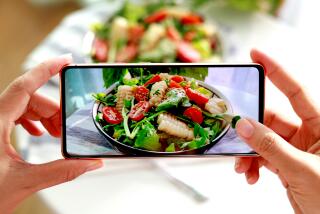Simple Guidelines Can Keep Dieting Safe and Effective
- Share via
The challenge for dieters is to lose weight safely, since many diets don’t just slash calories but also push the limit on other important nutrients, including essential vitamins and minerals.
This is particularly troublesome for women, many of whom already fail to get enough iron and calcium. “Hardly any of these (weight-loss) diets give women the nutrients that they need and that are important to their health,” said American Dietetics Association spokeswoman Chris Rosenbloom.
Nearly all weight-loss programs help trim unwanted pounds. But by cutting calories too much, many also set the stage for long-term failure.
“You may lose 30 pounds in 30 days or you may drop enough weight to get into a smaller dress size, but the weight will come right back and you may gain even more,” said Rosenbloom, an associate professor of nutrition at Georgia State University in Atlanta. “Some of these diets can also have negative effects psychologically. You lose weight, but can’t keep it off and can get yourself into further problems of body image and weight.”
Fortunately, the flaws of most diets are simple to overcome. Altering a few food choices--and adding supplements--can help keep a dieter in step with the latest nutritional guidelines set by the National Academy of Sciences. Among the things that can improve nutrition while dieting are:
* Take a multivitamin daily. In a recent review of nine popular diets, Jean Goldberg, director of the Center for Nutrition at Tufts University, found that many fell dangerously short on the recommended amount for iron and calcium daily set by the NAS. Some also provided less than 60% of the recommended amounts for calcium, magnesium, potassium and copper. Others met less than 80% of the recommendations for iron, thiamine, and vitamins B12, C and D.
* Don’t stop snacking. Just make it a scheduled snack--not mindless eating or bingeing. Registered dietitian Ann Litt of Bethesda, Md., recommends that her clients stop nibbling on cookies, candy bars and other sweets and consume more nontraditional snacks that are more satisfying and nutritious. Among the top choices: a piece of fruit with a glass of skim milk; a cup of yogurt; or a bowl of oatmeal.
* Don’t cut too many corners. Many diets are so restrictive that they become impossible to stick to, Goldberg said. Programs that dip below 1,300 calories a day should be used only for short-term weight loss, if at all. And it’s important for most people to consume about 20% or more of total daily calories as fat. On 1,500 calories per day, that means eating about 300 calories a day of fat.
While dieting, remember to:
* Eat enough meat and other iron-rich foods too. Adding small portions of lean red meat increases intake of iron as well as zinc and other important vitamins.
* Consume plenty of fiber. Not only is it filling, but it also helps maintain regularity, which is important for dieters.
* Think nontraditional. Sprinkle wheat germ (rich in potassium, phosphorus and folate) or sesame seeds (rich in calcium) on foods.




